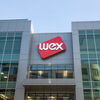Leverage your options
 Justin LaMontagne
Justin LaMontagne
Good or bad, there is no denying that in today's fast-paced, short attention span society, we have a lot of options. Options for television shows. Options for news sources. Options for dinner. Every day we make dozens of decisions. And, while not quite as abundant, there are several options in commercial real estate contracts. These are important to understand and can have significant impact on the health of your business and, especially, your real estate holdings.
The most common option we deal with in commercial real estate is a tenant's renewal option. At the expiration of a lease, the tenant has as sole right the ability to extend the lease for an additional period of time. Typically, this requires a certain notification period of six months to the landlord. It is important to recognize that renewal options are the rights of a tenant, and limit what a landlord can do with the property. They are legally binding rights and should be given only with great care and forethought in the initial lease negotiations. While very common, they are certainly tenant-friendly leverage points, and an encumbrance on real estate.
Understanding your lease rights as landlords or tenants is particularly important in a competitive market like today's. Businesses are seeing very limited relocation opportunities, so staying in place may become a virtual necessity. In addition, moving is costly, and can be prohibitively so.
There is a healthy debate in the commercial real estate world when it comes to setting renewal term lease pricing. In some cases, the rate is defined during the initial lease negotiation. In other words, the price is fixed several years in advance. That can be risky for both tenant and landlord depending on market conditions at the time of renewal. The upside is that it allows for clearer budget planning and for a smoother renewal transition. An alternative is to define the renewal lease price “at the market rates.” This is obviously a subjective number and can lead to an entirely new round of negotiations between landlord and tenant at the time of renewal.
Another common option in commercial real estate is a purchase option. This is sometimes known as a lease-to-own opportunity. Most purchase options have a definitive timeframe as to when the option can be exercised. A price is typically defined as well. From a property owner's perspective, there are pluses and minuses to this right. The obvious pro is that you get cash flow in the form of rent from a tenant until the building is bought. And that cash flow is typically not applicable to the purchase price. This also allows the tenant-buyer to get comfortable with the real estate and build capital for the acquisition. The major downside is that a tenant purchase option is another significant encumbrance to real estate in that it survives transfer of ownership. In other words, a prospective third party buyer would need to acknowledge and accept the purchase option, which would likely limit the buyer pool.
A purchase option is very different from what is commonly called a first right of refusal. The latter is another tenant-friendly clause that guarantees an option to match any third party offer the property owner may receive during the lease term. Rather than a formal option to buy, it is more appropriately described as a decision to buy if or when someone else is trying to acquire the asset. Right of first refusal creates no obligation for the property owner to sell, unlike a purchase option.
Decisions abound in navigating commercial real estate transactions. The individual components of a real estate contract are important leverage points for all parties, and should not be considered lightly. As always, it's best to consult an attorney or a trusted commercial real estate broker to better understand these concepts.
Now, what's for dinner?
Justin Lamontagne, a Certified Commercial Investor Member, is a partner and broker at NAI The Dunham Group. He can be reached at justin@dunhamgroup.com










Comments